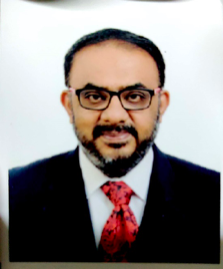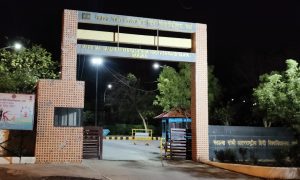On the miserable night of December 16, 2012, a most heinous crime was perpetrated on an absolutely helpless young woman by six abominable young men, regardless of her gut-wrenching pleas to let her go. Her male companion suffered irreversible physical and mental trauma. Inexplicable acts of sexual perversion were performed by the six men, including causing extreme internal injury to the victim girl, who is now known as Nirbhaya – fearless. It does not take too much intelligence to envision the extreme agony this girl would have gone through during the most condemnable violation of her body and mind. The nation was enraged and came together to get justice for Nirbhaya. This became a case that an entire nation would follow very closely as the collective conscience of the nation was being deeply disturbed by the painful plight of an innocent girl.
Much credit should be given to the Delhi police as all the accused persons were arrested within a week of the offence being committed. Despite the prayers of millions, Nirbhaya succumbed to her injuries on December 29, 2012. One of the perpetrators, Ram Singh, took his life in Tihar jail on March 11, 2013. That left five accused to be tried for, among others, gang rape and murder. One of the accused was tried as a juvenile and sent to a correction home for three years. This also brought about substantial debate in the country regarding amending the Juvenile Justice Act in such a manner to exclude persons committing grave crimes from the purview of the Act and allow them to be tried as adults. The Juvenile Justice (Care and Protection of Children) Act, 2015 makes it possible for juveniles to be tried as adults in case of heinous crimes as described in the Act. A clear procedure has been laid down in the Act to assess whether a juvenile has committed a heinous crime and should face criminal trial as an adult.
On September 13, 2013, within a year of the offence being committed, a Fast Track Court awarded death penalty to all the four accused. The Delhi High Court upheld the death penalty on March 13, 2014 and thereafter the Supreme Court confirmed death penalty on May 5, 2017. Thus, within 5 years of the offence being committed, judicial proceedings relating to deciding the case on merits had been completed. Though this looks like a long time to give finality to such a sensational case, it must be remembered that courts will not be influenced by public opinion but will decide cases only based on evidential merits and established principles of law.
A convict facing capital punishment will try to enhance his chances of escaping the noose by employing whatever possible method that may be available at his disposal. This is true of death penalty convicts in any part of the world. Statistics reveal that of the 1400 convicts that have been executed in the USA in the last four decades, roughly one in ten have abandoned their appeals. Available data shows that since 1991, sixteen convicts have been hanged in India, the last being Yakub Memon, July 30, 2015. With four of the Nirbhaya case accused being hanged today, the tally goes up to 20 in about 30 years. In almost all the cases in India, multiple petitions were filed before the High Courts concerned and the Supreme Court, apart from mercy petitions being filed before the President of India. We have seen the Supreme Court hearing curative petitions well past midnight in order to ensure that every available remedy has been provided to the accused.
Likewise, the Nirbhaya case convicts knocked the doors of the Supreme court and the Dehli High Court, filing multiple petitions and every single petition was dismissed by the courts consistently. It was also not possible to hang them at different times as the Delhi High Court had dismissed the Central Government’s petition in this regard. After all avenues including mercy petitions were exhausted, the four convicts have been hanged on March 20, 2020, bringing down the curtains on a case that had garnered worldwide attention, albeit at the gallows in Tihar jail.
This, in fact, raises the curtains on several issues. Are punishments, including capital punishment, really acting as deterrents in commission of crimes? Well, the answer has to be in the negative if one reads researches on this topic and based on the steady increase in crime rate. We have, over a period of time, become very tolerant to rule-breaking and manipulation. The chaotic traffic on Indian roads is an excellent example of this trait. A corrupt person, for instance, would have faced considerable social taboo, about 15 years ago perhaps. Now, news pertaining to issues regarding corruption no longer seems to bother us.
Offences may be classified as petty, grave, heinous and so on. However, it cannot be denied that the fundamental reason for the commission of an offence is an inappropriate sense of entitlement of one person or a group of person over others, disregard for the rule of law and in many cases a devious mind at work. We have seen that money and power have no direct influence on commission of offences. The convicts in the Nirbhaya case were neither wealthy nor powerful. They were not habitual offenders either. One was a helper in buses, one a part time bus driver, one a fruit seller and another a fitness trainer who could not even converse in English. All of them had one quality in common, a gross lack of respect for another human being, apart from the fact that they hailed from very ordinary backgrounds with little or no exposure to being civil.
We have to examine the manner in which we are nursing and raising the younger generation of this country, particularly those in schools, and make very considered changes to sensitise them on gender equality, being law abiding and not causing any harm to another person. More often than not, parents are guilty to yielding to unacceptable demands of their children, the reasons may be many, but none of them will be acceptable. We permit our children to drive vehicles without valid driving licenses and many people do not think twice before taking the wheel after having had alcohol. This may not sound like a big deal, but this is how we unknowingly condition our mind to accept violations.
With modern technology and the reach it offers, the time is right now to do some course correction and become a more responsible society that holds every citizen an equal. We must become living examples for our children as if we are in violation ourselves, we lose the moral right to question their transgressions. India is a land of rich and diverse culture that no other country in this world can claim to possess. All we need to do is dig into our near inexhaustible intellectual resources and tell ourselves that we are very capable of making our country the best in the world. That will be the true tribute we pay to Nirbhaya.
About the author
C G Kumar is a practicing lawyer from 1996 dealing with civil, criminal, corporate, banking and IPR laws. He currently practices in High Court and District Court and has offices in Chennai and Coimbatore. Follow him on twitter @worthword. For queries you can get in touch with him through [email protected]




























 WhatsApp us
WhatsApp us
Pingback: keto diet plan for women over 50
Pingback: gay dating site reviews
Pingback: วิเคราะห์บอลวันนี้
Pingback: http://www.aaronbrock.ca/gbook/go.php?url=https://gasdank.com/